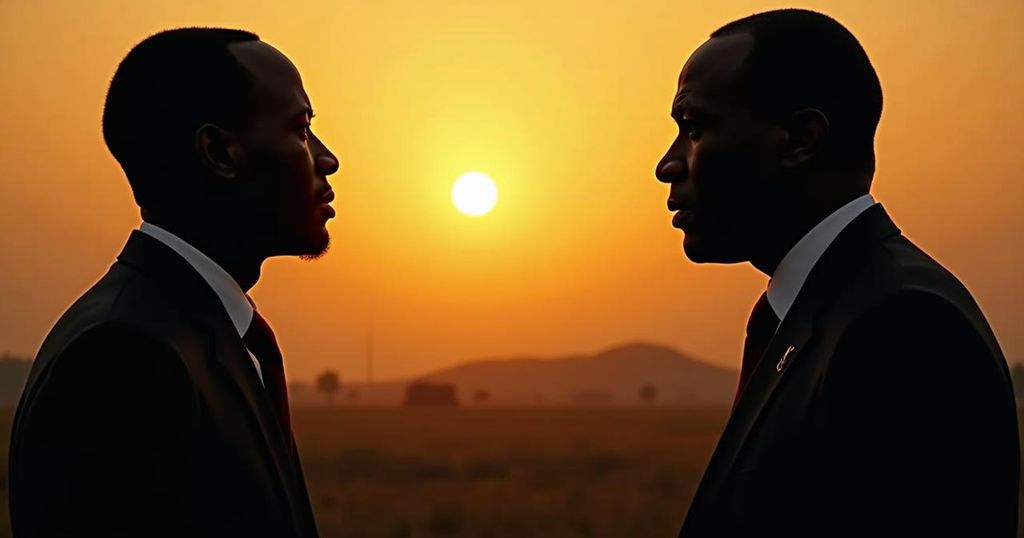Rwandan Foreign Minister Reports Congolese Rejection of M23 Conflict Resolution Agreement

Rwandan Foreign Minister Olivier Nduhungirehe revealed that the Congolese minister declined to sign a proposed agreement intended to address the conflict involving the M23 rebel group, responsible for significant displacement in eastern DRC. The conflict, rooted in ethnic tensions and geopolitical struggles, has persisted since 2022. Rwanda maintains its position against allegations of supporting the M23, while negotiations aimed at resolving the conflict continue to face obstacles and disagreements between the two nations.
On Saturday, Rwandan Foreign Minister Olivier Nduhungirehe reported that the Congolese Minister of Foreign Affairs declined to sign a proposed agreement aimed at addressing the ongoing M23 rebel conflict in the eastern region of the Democratic Republic of Congo (DRC), which has led to the displacement of more than 1.7 million individuals. The M23 group, predominantly composed of Tutsis, has been engaged in an insurgency since 2022 in a region plagued by violence. Both the DRC and the United Nations have accused Rwanda of providing support, including troops and weapons, to the M23. However, Rwanda has denied these allegations, asserting that it has implemented defensive actions and has criticized the DRC for allegedly collaborating with a Hutu rebel faction known as the Democratic Forces for the Liberation of Rwanda (FDLR), which has targeted Tutsis in both nations. Earlier negotiations conducted in late August sought to alleviate the conflict, which has exacerbated the ongoing humanitarian crisis in the region and raised concerns about potential escalations into a broader war. During the talks, which included representatives from both nations, including the head of Congolese military intelligence, a mutual plan was reported to have been formulated for addressing the FDLR and subsequently easing Rwanda’s defensive posture. According to Minister Nduhungirehe, on September 14, Rwanda was prepared to sign the deal but was met with refusal from the Congolese minister, who expressed opposition after reviewing the proposed document. Nduhungirehe explained that the arrangement called for a phased approach to operations against the FDLR, with measures against the FDLR occurring first, and Rwanda would subsequently reduce its defensive measures. The Congolese minister reportedly objected to this sequential arrangement, insisting on simultaneous actions. A representative from the Congolese government did not provide an immediate response when contacted for comment. Notably, both President Felix Tshisekedi of the DRC and President Paul Kagame of Rwanda were present at the summit in France, where President Emmanuel Macron proposed a three-way dialogue.
The M23 conflict in the eastern Democratic Republic of Congo has significant historical and geopolitical roots that contribute to the region’s persistent instability. The M23 is largely made up of Tutsi fighters, who share ethnic ties with the Rwandan leadership. The group has emerged amidst longstanding grievances about political representation, ethnicity-based violence, and regional power dynamics. Rwanda’s involvement is viewed controversially, as the DRC accuses it of undermining its sovereignty by supporting the M23 for its strategic interests. This conflict not only fosters humanitarian crises—including mass displacements—but also poses risks of wider regional warfare, compelling international stakeholders to engage in mediation efforts, such as the recent negotiations aimed at resolution and stabilization of the region.
In conclusion, the refusal of the Congolese Foreign Minister to endorse the agreement proposed by Rwanda underscores the complex dynamics at play between the two nations regarding the M23 conflict. The ongoing tensions exemplify the struggles over regional power, ethnic affiliations, and the humanitarian implications faced by the local populations. Effective resolution remains critical for ensuring peace and stability in the eastern DRC, as well as for reinforcing diplomatic relations between Rwanda and the DRC.
Original Source: www.usnews.com








